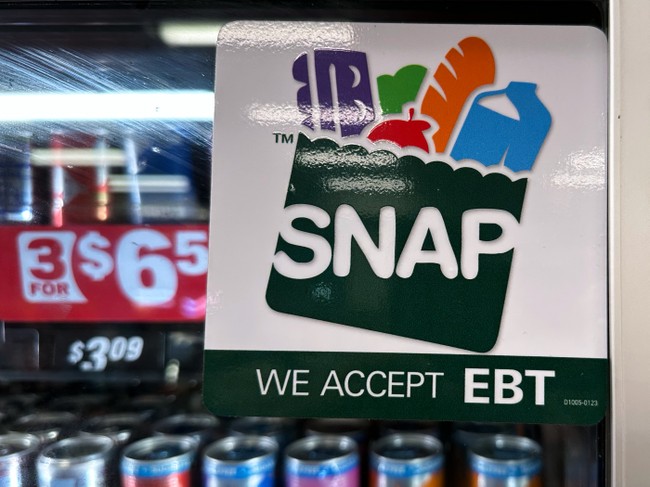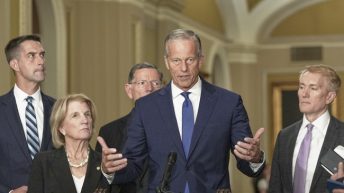The federal judiciary has stepped in after SNAP payments stopped during the government shutdown, with Judge John J. McConnell Jr. ordering the USDA to resume full funding for the Supplemental Nutrition Assistance Program while the issue moves through appeals. The order follows earlier rulings and heated courtroom language about the potential for millions to lose access to benefits during the lapse in appropriations. The administration has argued funding via contingency accounts would violate the Antideficiency Act and has appealed the latest decision. This piece reviews the sequence of rulings, the legal arguments, and the political context driving the dispute.
The judge’s order came after a short, tense hearing in which he admonished the government for failing to act quickly to restore SNAP benefits. He issued a deadline requiring the government to make the payments, framing the delay as a serious problem that risked leaving vulnerable Americans without help. The SNAP program had been suspended starting November 1st as the federal shutdown pushed past the deadline for regular appropriations. Courts in multiple districts have issued orders directing the USDA to use contingency or discretionary funds to keep the program running.
Several judges already had instructed the administration to restart benefits, and Judge McConnell’s ruling reiterated that course while criticizing how the administration handled the matter. The order was the second legal rebuke in days, and it brought into sharp relief the tension between judicial orders and the administration’s legal position. In court, the judge expressed alarm at the possible impact on millions of recipients if payments were not resumed quickly. Those affected include low-income families across urban and rural areas who depend on SNAP for basic food assistance.
A federal judge ordered the Trump administration on Thursday to fund food stamps in full for roughly 42 million low-income Americans, after admonishing the government for delaying aid under the nation’s largest anti-hunger program during the shutdown.
The order, issued by Judge John J. McConnell Jr. of the U.S. District Court for the District of Rhode Island, marked his second legal rebuke of the administration for actions that threatened to leave millions of Americans at risk of financial hardship.
Reading his directive from the bench after a short but tense hearing, Judge McConnell sharply criticized the administration for ignoring his original order last week to quickly restart payments for SNAP, or food stamps. He attributed the delay, in part, to an attempt by President Trump and his aides to disrupt the program “for political reasons.”
That language fed into a broader political debate over whether the administration intentionally sought to withhold benefits for leverage or policy reasons amid the shutdown. The White House and USDA maintain that using contingency funds to make full SNAP allotments would breach the Antideficiency Act, which bars obligations without an appropriation. The administration filed an appeal to the 1st Circuit Court of Appeals challenging the most recent district court order, signaling that the dispute will proceed through higher courts.
Court filings from the USDA argued that ordering the department to deposit full benefit amounts without a new appropriation could be a criminal violation, citing provisions meant to prevent unauthorized federal spending. The department’s memorandum stated that plaintiffs were effectively asking the court to require full allotments irrespective of the absence of appropriations, which the agency described as a nonstarter. That legal stance underpins the administration’s decision to seek appellate review rather than immediately comply with the order.
Nonprofits, municipalities, and faith-based organizations had sued to force the administration’s hand, arguing that failing to fund SNAP would cause immediate harm to beneficiaries and local service providers. Plaintiffs emphasized the practical consequences for food banks, schools, and community programs that see increased demand when federal assistance stalls. Courts were asked to weigh statutory spending constraints against the immediate needs of households facing hunger during the shutdown.
“This should never happen in America,” the judge said, as he warned that millions of poor families could go hungry in the absence of reliable federal aid. He gave the government until Friday to make the SNAP payments.
Spokespeople for the White House, the Agriculture Department and the Justice Department did not immediately respond to requests for comment.
The ruling, for now, marked a victory for cities, religious groups and nonprofits, which had sued the Trump administration in a bid to sustain the food stamp program. It provides aid to about one in eight Americans — but it stood to shutter entirely in November after the White House refused to fund benefits.
Legal observers note this clash raises important separation-of-powers questions: can courts compel spending when Congress has not appropriated funds, or does that risk overriding constitutional budget controls? The practical answer courts face is immediate and human: thousands of households may feel the effects in days. Meanwhile, the executive branch insists that the appropriate fix is legislative action to fund programs, not judicially ordered spending that bypasses Congress.
The conflict also became a flashpoint in the partisan battle over the shutdown, with political leaders trading blame for the stalemate and its consequences. Editorial voices across the spectrum are pointing at legislative responsibility and executive restraint, but the core problem remains the unfinished appropriations process. As the dispute heads to appeals, the central question is whether the courts will allow temporary judicial relief in a way that avoids long-term conflicts with statutory spending rules.
Editor’s Note: The Schumer Shutdown is here. Rather than put the American people first, Chuck Schumer and the radical Democrats forced a government shutdown for healthcare for illegals. They own this.
Tags: JUDGES, SNAP, TRUMP ADMINISTRATION





Add comment